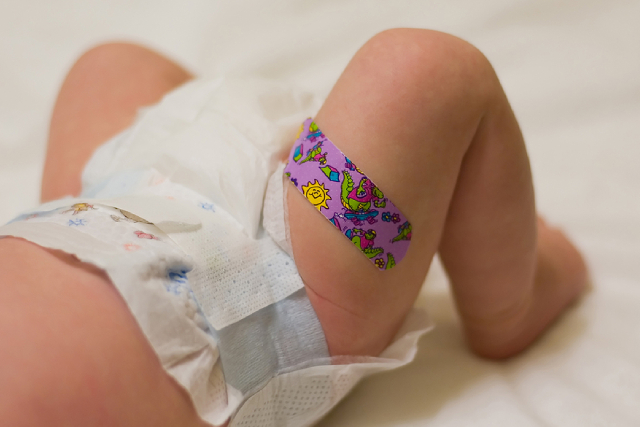
blog
Understanding Developmental Delays and Their Warning Signs

Every parent eagerly anticipates the milestones in their child's development: the first smile, the first steps, and the first words. However, when these milestones seem delayed, it can be a cause for concern. Understanding developmental delays and recognising their warning signs is crucial for early intervention, which can significantly improve outcomes for children.
What Are Developmental Delays?
Developmental delays refer to a child’s inability to reach certain developmental milestones at the expected times. These delays can affect various areas, including motor skills, speech and language, cognitive abilities, and social and emotional development.
While each child develops at their own pace, significant delays in one or more areas may indicate an underlying issue that needs attention. Doctors will assess how well your child is growing by assessing the following areas of development during child developmental assessments.
Types of Developmental Delays
1. Motor Skills Delays
- Gross Motor Skills: These involve large movements such as crawling and jumping. Delays in gross motor skills might be noticed if a child struggles with sitting up, rolling over, or walking independently by the expected ages.
- Fine Motor Skills: These involve smaller movements, such as holding a spoon, picking up small objects, or drawing. Difficulty with tasks like using utensils or stacking blocks may signal a delay in fine motor skills.
2. Speech and Language Delays
- Expressive Language: This refers to how a child uses words and sentences. Delays in expressive language might be evident if a child isn’t babbling by 12 months, has a limited vocabulary by 2 years, or struggles to form sentences by 3 years.
- Receptive Language: This involves understanding what others say. Warning signs include not responding to their name, difficulty following simple instructions, or not understanding basic concepts appropriate for their age.
3. Cognitive Delays
- Cognitive development involves learning, thinking, problem-solving, and memory. Signs of cognitive delays may include difficulties with attention, understanding cause and effect, or learning new skills appropriate for their age group.
4. Social and Emotional Delays
- These delays affect a child’s ability to manage emotions and interact with others. Warning signs include difficulty making eye contact, lack of interest in interacting with peers, and challenges in understanding or expressing emotions.
Warning Signs of Developmental Delays
While every child is unique, certain red flags can indicate the need for further evaluation:
By 3-4 Months
- Not smiling at people
- Not following moving objects with their eyes
- Lack of cooing or making sounds
- Not able to hold head up
By 7-9 Months
- Not responding to their name
- Not showing interest back-and-forth play
- Difficulty sitting without support
By 12 Months
- Not crawling
- Not saying single words like “mama” or “dada”
- Not pointing to objects or people
By 18 Months
- Not walking independently
- Not having at least a few words
- Not copying others
By 24 Months
- Not using simple two-word phrases
- Not following simple instructions
- Limited interest in playing with other children
By 36 Months
- Limited use of three-to four-word sentences
- Difficulty understanding simple questions or instructions
- Not engaging in pretend play
Causes of Developmental Delays
Developmental delays can result from various factors, including:
- Genetic Conditions: Disorders such as Down syndrome can lead to developmental delays.
- Premature Birth: Babies born prematurely are at higher risk for developmental delays.
- Environmental Factors: Exposure to toxins, poor nutrition, or a lack of stimulation can impact development.
- Medical Conditions: Chronic illnesses, infections, or untreated medical issues like hearing loss can contribute to delays.
- Neurological Issues: Problems in the brain, such as cerebral palsy or autism spectrum disorder, can cause delays in development.
Importance of Early Intervention
Early intervention is critical for children with developmental delays. It can help mitigate the impact of delays and improve the child’s ability to learn new skills. Intervention services may include:
- Speech Therapy: Helps with language and communication skills.
- Occupational Therapy: Assists with fine motor skills and daily living activities.
- Physical Therapy: Supports the development of gross motor skills.
- Special Education Services: Provides tailored educational support.
Seeking Help and Support
If you suspect your child has a developmental delay, it is important to seek professional advice.
Here are some steps you can take:
- Consult Your Pediatrician: Share your concerns with your child’s doctor. They can perform developmental screenings and refer you to specialists if needed.
- Early Intervention Programs: In many regions, early intervention programs are available for children under three. These programs offer evaluations and services to support development.
- Specialists: Depending on the type of delay, you may be referred to a speech therapist, occupational therapist, physical therapist, or developmental psychologist.
- Support Groups: Connecting with other parents who are experiencing similar challenges can provide emotional support and practical advice.
Conclusion
Understanding developmental delays and recognising their warning signs is essential for ensuring that children receive the help they need as early as possible. While each child grows and develops at their own pace, significant delays should not be ignored. With timely intervention and support, many children with developmental delays can catch up to their peers and lead fulfilling lives. As parents, staying informed and proactive is the best way to support our children’s growth and development.
For baby and child developmental screenings at home, reach out to us at Babysteps Medical. We offer doctor house visits in Singapore and provide phototherapy for jaundice and baby immunisation vaccination. Browse our website to find out more.



